Valley Bounty: Robariah Farms takes chicken to the next (kosher) level
| Published: 11-04-2024 5:34 PM |
‘When people say our chicken is the best they’ve ever had, some of that is the breed we’re raising, some is how we’re raising them on pasture, and some is because of the koshering process,” says Robert Friedman of Robariah Farms in South Deerfield.
It’s becoming more common to find meat that’s certified kosher or halal, which is great news for Jews and Muslims, respectively, who follow those religious dietary rules. There are also many local farms in western Massachusetts raising pastured meat and prioritizing animal welfare, the health of their land, and local sales. Yet few farms raise local meat that’s also kosher, especially. Robariah Farms does.
“If you care about ethically and pasture-raised local meat, that’s what our chicken is,” says Friedman. “If you care about it being kosher, that’s also what it is. Our customers are people who care about either or both of those things.”
The name Robariah combines Friedman’s first name and that of his wife, Shemariah Blum-Evitts. In addition to farming with her husband, Blum-Evitts is also the executive director of Land for Good, a nonprofit that helps farmers and landowners navigate the complexities of finding, leasing or transferring farmland. Friedman also works off-farm as a communications and marketing consultant.
In the past, the couple also raised kosher-certified duck, turkey and lamb, and may again as time allows. For now, their flocks of egg-laying hens and meat chickens are the only animals they tend on 7 acres of leased farmland in the shadow of Mount Sugarloaf.
Autumn colors on the mountain mark the end of a farming season that starts when day-old chicks arrive in March. The chicks are first raised in a warm greenhouse and then move outdoors, spending 10-12 weeks on pasture before being processed. The cycle then begins again, with a second and then a third batch of chickens raised on grass before pastures go dormant in late fall.
Three months may seem quick to raise a full-size chicken, but as Friedman explains, most commercial farms raise theirs in half the time.
“Almost all the chicken sold in the U.S. comes from a breed called Cornish cross,” he says. “They grow very fast in confined, indoor environments and have lots of breast meat, because that’s what people are familiar with.”
Article continues after...
Yesterday's Most Read Articles
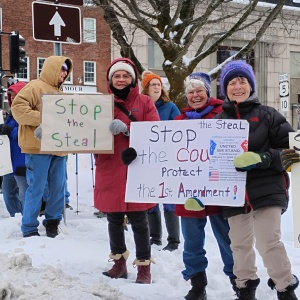 Local ‘Hands Off!’ standouts planned as part of national effort
Local ‘Hands Off!’ standouts planned as part of national effort
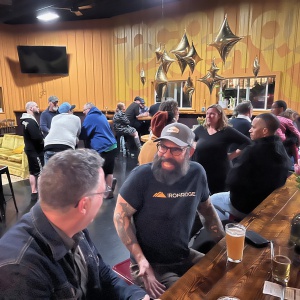 Incandescent Brewing now open in Bernardston
Incandescent Brewing now open in Bernardston
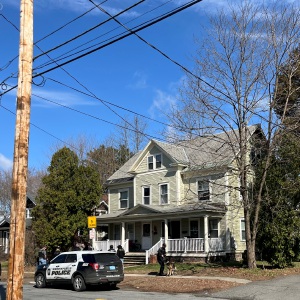 Two arrested on drug trafficking charges in Greenfield
Two arrested on drug trafficking charges in Greenfield
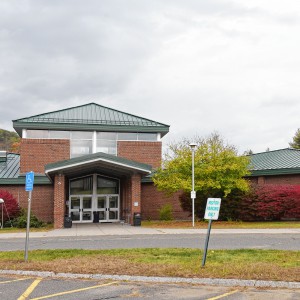 Berkshire DA says no crime occurred in student-officer relationship at Mohawk Trail
Berkshire DA says no crime occurred in student-officer relationship at Mohawk Trail
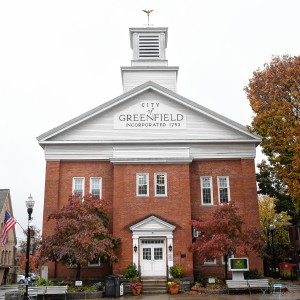 Proposed ordinance would make Greenfield a ‘sanctuary city’ for trans, gender-diverse people
Proposed ordinance would make Greenfield a ‘sanctuary city’ for trans, gender-diverse people
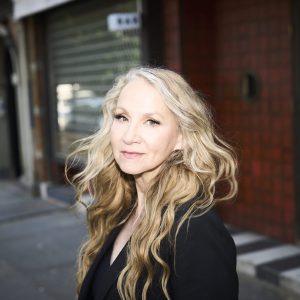 Sounds Local: A legend pays tribute to an icon: Seven-time Grammy-nominated Joan Osborne brings Bob Dylan repertoire to Shea Theater
Sounds Local: A legend pays tribute to an icon: Seven-time Grammy-nominated Joan Osborne brings Bob Dylan repertoire to Shea Theater
Unfortunately, accelerated growth can sometimes bring health issues, and while they eat voraciously, these chickens prefer sitting to foraging, making them difficult to raise on pasture. Instead, Robariah Farms raises a variety called Freedom Ranger that’s been bred for life outside.
“They’re super active, always digging and eating grass and bugs,” says Friedman. “They’re very resilient to swings in temperature and weather, and just healthier overall I think, which translates to the quality of meat. To me, Cornish cross chicken tastes more like tofu compared to these birds.”
The breed of an animal and how it’s raised both affect the quality of any meat. How animals are processed does, too. For Robariah Farms, kosher processing at a local facility ensures that the broader community and their Jewish community can both enjoy their chicken.
Friedman describes three ways that kosher processing of poultry is different. First, all animals must be slaughtered by a trained shochet using a special straight-edged knife to quickly and humanely end the animal’s life and drain as much blood as possible. This step stems from teachings in the Torah that equate blood to life force and say every drop must be removed before meat is eaten.
The second difference is how feathers are removed. Often chickens are scalded in hot water to make this easier, but kosher rules prohibit cooking meat at this stage, so instead they must be dry-plucked.
The third difference is the koshering step. For this, the meat is soaked in water for half an hour, then covered in salt and let sit for another hour before being rinsed. “The intent is to remove all remaining blood,” says Friedman, “but it also essentially brines the meat, which adds a lot of flavor.”
Because kosher processing takes more time and special equipment, it’s mostly big facilities out of state that are willing to do it. Robariah Farms used to send their birds to a facility like that, but soon felt the drawbacks were too big to ignore. Besides the logistics, emissions, and stress — for chickens and farmers — of driving chickens far away and back again, Friedman didn’t like feeling beholden to big businesses to earn kosher certification.
“We wanted to take back our agency ... to make an option for kosher processing that’s less industrialized and more community-based, as it was for generations,” he says. “But to do that, we had to create the local infrastructure we need.”
Because kosher processing uses different equipment and methods, many local meat processors have not invested in providing that service. Friedman doesn’t blame them, but he’s glad to have found one local facility that wants to collaborate on making small-scale kosher processing more efficient. Backed by a Sustainable Agriculture Research and Education grant, the two parties have experimented with new techniques and co-invested in new equipment.
“Plucking is the biggest bottleneck for small kosher processers,” Friedman says. “It’s more challenging and time-consuming to dry-pluck. We’ve tried many types of machines, and the one we’re piloting now is much faster than those before.”
Initially, Robariah Farms reduced the number of chickens they raised because the local facility they work with couldn’t process that many. Now that they’ve loosened some bottlenecks, they plan to raise more chickens again. Meanwhile, they’ve paved the way for other local farms to raise more kosher meat too.
For now, Robariah Farms chicken is available only through their CSA farm share. Customers can sign up to reserve chickens in any multiple of five (five being the minimum) either whole, halved, or in cuts. Orders for spring 2025 are now open, with pickup on-farm, at the Congregation B’nai Israel synagogue in Northampton, and further afield.
Their eggs are also available year-round at their farm stand at 144 N. Main St. in South Deerfield or via weekly delivery. Those interested in their CSA or egg delivery can sign up at their Instagram page: instagram.com/robariahfarms.
“Our tagline is ‘bringing kosher back to local,’” says Friedman. They are certainly making headway.
Jacob Nelson is communications coordinator for CISA (Community Involved in Sustaining Agriculture). To learn more about all kinds of local farms and local food for sale near you, visit buylocalfood.org.













 Muffins for Presidents Day: A recipe inspired by John and Abigail Adams
Muffins for Presidents Day: A recipe inspired by John and Abigail Adams Speaking of Nature: Signs of a lucky escape: L’il Stumpy’s tail of adventure
Speaking of Nature: Signs of a lucky escape: L’il Stumpy’s tail of adventure Say cheese this New Year’s Eve: The surprisingly fascinating history of cheese balls
Say cheese this New Year’s Eve: The surprisingly fascinating history of cheese balls Highlighting ‘community and beauty’: ‘Welcome Yule’ performers taking stage in Turners Falls for 40th year
Highlighting ‘community and beauty’: ‘Welcome Yule’ performers taking stage in Turners Falls for 40th year
